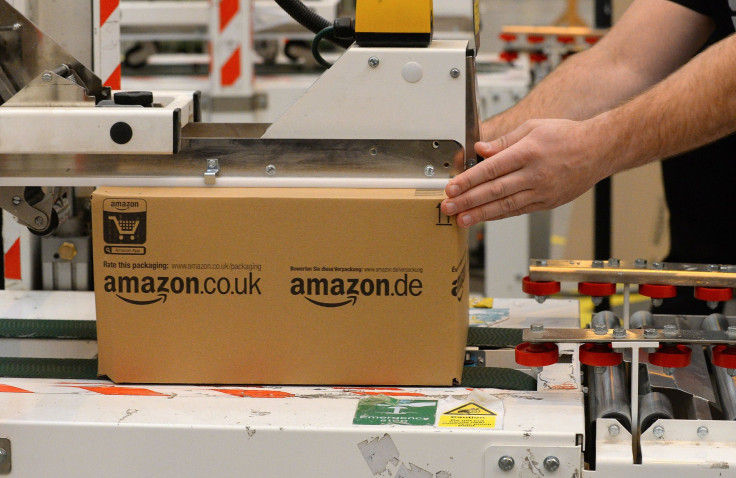One-Day Shipping Could Boost Amazon's Stock By 50%

Amazon.com (NASDAQ:AMZN) dropped a bombshell back in April, when it announced that the company planned to shorten its standard two-day delivery option to just one day for Prime members. Amazon had been offering two-day (or faster) shipping to subscribers for years, but said it would offer one-day shipping on 100 million of its most popular items that were previously delivered within two days.
In the increasingly competitive e-commerce industry, rapid delivery has been a key differentiator for Amazon, as other online and brick-and-mortar retailers have scrambled to catch up. This has helped Amazon remain one of the top stocks to buy in recent years, with shares up more than 400% since 2014.
Shares of the e-commerce giant could still have significant upside as a result of this recent move.
Tapping real demand
A recent online retail survey by RBC Capital Markets shows that 64% of U.S. internet users say they are "extremely" or "very" interested in next-day shipping, so Amazon's efforts are fulfilling an existing demand -- which will increase its likelihood of success. Amazon is expected to roll out Prime one-day shipping to most of the U.S. within one year and across its global customer base within two to three years.
This could increase the company's already dominant position in the e-commerce industry. Amazon was responsible for more than one- third of online sales in the U.S. in 2018, according to data provided by Digital Commerce 360. Penetration was even higher during December 2018 -- nabbing 39% of e-commerce sales -- as procrastinating shoppers rushed to get gifts they needed in time for the holidays. This illustrates how Amazon's speedier shipping is helping it nab additional market share.
Feeding the bulls
RBC analyst Mark Mahaney recently completed a "deep-dive analysis" and believes that one-day shipping will be a catalyst that will accelerate global adoption of Amazon Prime. Additionally, existing subscribers will likely increase the amount they purchase by between 5% and 11% annually -- up from the $1,800 they're already spending. These two factors alone could boost Amazon's revenue by as much as 15% per year, or an additional $24 billion.
Mahaney also believes one-day delivery will increase Amazon's flywheel effect related to Fulfillment by Amazon (FBA) and Shipping with Amazon (SWA). "One-Day makes Prime more appealing for consumers, which makes FBA more appealing for vendors, which increases supply on Prime, which makes Prime more appealing for consumers." At the same time, SWA is targeting the $900 billion global third-party logistics market. This will help greatly expand Amazon's addressable market.
As a result, the analyst has boosted the company's price target to a street-high $2,600 per share over the coming 12 months, an increase from its previous estimate of $2,250 per share and up nearly 50% from the stock's current price.
Already bearing fruit
Amazon's second-quarter results show that the move is working. Revenue grew to $63.4 billion, up 20% year over year, reversing a yearlong trend of slowing revenue growth. Even more telling, sales went up by $3.7 billion sequentially, nearly double the $1.9 billion increase during the same period last year -- a clear indication of the demand for Amazon's speedier delivery.
It's still early days for Amazon's faster shipping service, as the company continues to expand the number of zip codes and products eligible for one-day delivery. The move has already pressured other e-commerce providers to match its next-day shipping. Just weeks after Amazon's announcement, Walmart (NYSE:WMT) debuted its own one-day delivery option on orders over $35, offering about 220,000 products -- a far cry from the more than 100 million available from Amazon.
Once again, the e-commerce juggernaut has other retailers playing defense, and Amazon and its investors will be the ultimate beneficiaries of the move.
This article originally appeared in the Motley Fool.
Danny Vena owns shares of Amazon. The Motley Fool owns shares of and recommends Amazon. The Motley Fool has a disclosure policy.




















